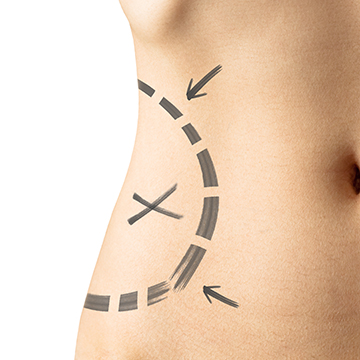 Nip, Tuck or Fill: 31% of Brits are interested in having cosmetic surgery in the future
Nip, Tuck or Fill: 31% of Brits are interested in having cosmetic surgery in the future
-
Stomach/waistline is the nation’s least liked body part.
-
69% of Brits agree that visibly damaged teeth can impact people’s emotional wellbeing.
-
71% of Brits agree that people should be psychologically assessed before they are allowed to have cosmetic surgery.
-
Going under the knife may seem like an extreme step to take in the name of beauty, but according to latest research from Mintel, 31% of UK adults would be interested in having a surgical cosmetic procedure* in the future.
Latest research published by Mintel reveals that the UK has a love hate relationship with body image, with our waistlines and tummies being our least loved body part.
Research also reveals that willingness to undergo a surgical procedure is highest amongst women, with 37% indicating that they would consider having one. But despite having youth on their side, interest in cosmetic surgery peaks at 52% of women aged 18-34. Not to be left behind in the beauty stakes, as many as a quarter (24%) of all men would consider a surgical cosmetic procedure, with interest rising among men aged 18-34 (39%).
Around one in seven (14%) women is interested in liposuction, while 11% would consider a tummy tuck. Just 8% would consider a facelift, breast augmentation or eyebrow/eyelid lift. Meanwhile, 7% of men would consider a hair transplant.
On a less invasive note, 43% of Brits are interested in non-surgical cosmetic procedures, with teeth whitening (27%), permanent hair removal (12%) and skin treatments (11%) proving the top three non-surgical procedures Brits would consider.
Jack Duckett, Senior Consumer Lifestyles Analyst at Mintel, said:
“Women’s relatively high level of interest in cosmetic surgery can be strongly tied to their typically higher level of concern about self-image. People’s increasing candour online about their experiences of non-surgical procedures have helped to erode many of the taboos which still surround ‘having work done’, even normalising certain treatments. This has also been boosted by the cult of reality television stars, many of whom are happy to share details of their own cosmetic enhancement experiences. With young women most engaged with these channels, it is perhaps unsurprising that this group is the most likely to show interest in undergoing a procedure.”
Waistline is the most disliked body part
Mintel research finds that the nation’s tums are causing the greatest anguish, with 41% of all Brits saying they are content with their waistline/waist. Women (48%) are twice as likely as men (24%) to be unhappy with the appearance of their stomach/waistline.
Award Winning Cosmetic Surgeon, Fulvio Urso Baiarda, says ” Last year was the year of the breast, this year is definitely the year of the tummy, it seems a desirable pursuit of every age and size right now”
Mandy Luckman, Partner at Irwin Mitchell, Birmingham, is a Clinical Negligence Expert as says “Whilst the demand for perfect tummies continues to increase we have also seen a rise in consumer complaints about botched and sub standard gastric band proceedures”
And while it may be difficult to resist a selfie, 30% of Brits say they are unhappy/very unhappy with the appearance of their teeth. Dissatisfaction with teeth peaks among women aged 45-64 (38%). The importance of having a healthy-looking smile is underlined by the fact that 69% of all adults agree that visibly damaged teeth can impact people’s emotional wellbeing.
Overall, women appear less satisfied with their appearance than men. Other common areas of dissatisfaction for women include bums/hips and thighs (40%), facial/body hair (28%), arms (25%), chin/neck (24%) and breast/chest (23%). Overall, 16% of women say that their appearance has impacted their stress levels over the last 12 months.
The growing influence of social media is highlighted by the fact that almost half (46%) of Brits agree that social media has made getting non-surgical procedures more commonplace.
“Our research shows that women are much more likely to be unhappy with areas of their appearance than men, reflecting the high level of pressure many women feel to look a certain way. Much of this pressure comes from the advertising industry, with the continued emphasis on photoshopped models promoting unachievable aesthetic goals. But there can be no doubt that social media is also playing an important role in exacerbating many women’s self-image doubts. Indeed, while photo editing and filtering tools available on social media have allowed women to perfect their online appearance, for many, this has only made them more self-conscious of their unedited, real-life appearance.” Jack continues.
Strong demand for psychological assessment
Seven in ten (71%) adults agree that people should be psychologically assessed before they are allowed to have cosmetic surgery. Meanwhile, 59% of adults believe that there is still not enough regulation for non-invasive cosmetic procedures, while agreement with the sentiment rises to 62% for invasive procedures.
Overall, 15% of Brits believe it is just as safe having surgical procedures performed abroad as in the UK. Agreement with the sentiment varies significantly by age, with young adults aged 25-34 (23%) proving the most trusting of foreign cosmetic surgery clinics.
“Young Brits are much more trusting of foreign surgery clinics than their older counterparts. Much of the appeal in travelling abroad for cosmetic surgery is the typically lower cost, but it can also be attributed to these countries offering a holiday experience while recovering from surgery.” Jack concludes.
*includes nose surgery, eyebrow/eyelid lift, breast augmentation, facelift, genital surgeries, breast reduction, hair transplant, liposuction, tummy tuck, neck lift, ear surgery and excess skin removal
